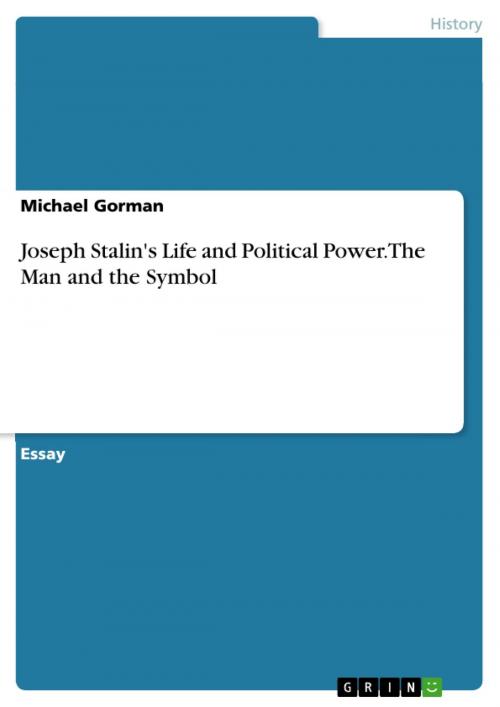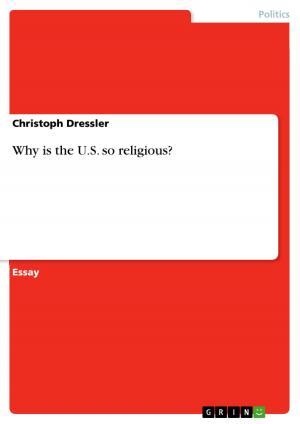Joseph Stalin's Life and Political Power. The Man and the Symbol
Nonfiction, History, Modern, 20th Century| Author: | Michael Gorman | ISBN: | 9783668232297 |
| Publisher: | GRIN Publishing | Publication: | June 2, 2016 |
| Imprint: | GRIN Publishing | Language: | English |
| Author: | Michael Gorman |
| ISBN: | 9783668232297 |
| Publisher: | GRIN Publishing |
| Publication: | June 2, 2016 |
| Imprint: | GRIN Publishing |
| Language: | English |
Essay from the year 2015 in the subject History Europe - Other Countries - Ages of World Wars, grade: 92.0, Westminster College, language: English, abstract: It is proposed that Joseph Stalin, the man as well as the symbol, be analyzed in order to reveal the man behind the icon. This research will include details of Stalin's everyday life and his vacations on the Black Sea, the 'Great Terror,' World War II, and the terrifying decades of his supreme power. It will also go into detail about the suicide of Stalin's wife, Nadya, and how it affected him for the rest of his life, what kind of man he was as a father, as well as the lives of the members of his inner circle and their fall from grace. From a historical context Joseph Stalin comes off as being psychotic, merciless, killer, and a brutal dictator. This research will attempt to reveal that this dictator of a nuclear capable world super-power, merges as being, although a bit paranoid, surprisingly normal and quite human.
Essay from the year 2015 in the subject History Europe - Other Countries - Ages of World Wars, grade: 92.0, Westminster College, language: English, abstract: It is proposed that Joseph Stalin, the man as well as the symbol, be analyzed in order to reveal the man behind the icon. This research will include details of Stalin's everyday life and his vacations on the Black Sea, the 'Great Terror,' World War II, and the terrifying decades of his supreme power. It will also go into detail about the suicide of Stalin's wife, Nadya, and how it affected him for the rest of his life, what kind of man he was as a father, as well as the lives of the members of his inner circle and their fall from grace. From a historical context Joseph Stalin comes off as being psychotic, merciless, killer, and a brutal dictator. This research will attempt to reveal that this dictator of a nuclear capable world super-power, merges as being, although a bit paranoid, surprisingly normal and quite human.















